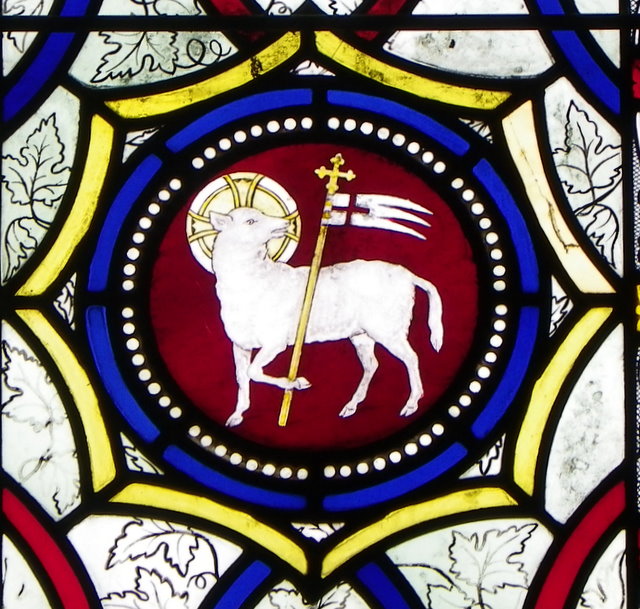
cc-by-sa/2.0 – © Maigheach-gheal
Today’s song is a setting by John Bell of the Agnus dei, a standard part of the Communion service in traditional churches. The words are simple, though repeated: “Lamb of God, have mercy on us. Lamb of God, give us your peace”. The Lamb is Jesus as the symbolic sacrifice who reconciles us to God, offering mercy instead of condemnation for our sins and peace instead of the mixture of pride, shame and worry that so often clouds our minds. The Church is often criticised by those outside it for being ‘obsessed with sin’, and it’s true that most gatherings for worship include a form of confession or at least a request for God to have mercy on us. Is this really needed?
This seeking and receiving of God’s mercy is often discussed with the analogy of washing – “Was me from my iniquity, and cleanse me from my sin” wrote King David in Psalm 51. To extend the metaphor, there are different forms or degrees of washing as there are degrees of uncleanness. It’s good hygiene practice to wash hands frequently and take regular showers, just because in the normal course of life we pick up germs and we sweat. Nothing exceptional about that, it’s just the way life is, and in the same way it’s good to seek God’s mercy regularly for the many small or even unnoticed ways in which we directly or indirectly fail to love our neighbours as ourselves as part of the human condition. Singing a devotional song like this may be adequate to deal with them.
Then there are the more noticeable sins, deliberate acts or omissions for which we should specifically say sorry both to God and neighbour, just as we particularly need a good wash when we’ve fallen in the mud, then we can walk away feeling clean again. But there are also the ‘big sins’ which seriously harm our relationships with God and neighbour (for further discussion of this look up any text on the distinction between ‘mortal’ and ‘venial’ sins). Like someone who has fallen, or for that matter deliberately jumped, into a tank of farmyard slurry. A quick shower won’t do the job, they and their clothes will stink for a long time. Such was David’s sin over Bathsheba and Uriah and such sins may need formal confession and counselling as we seek to come to a deep repentance. But Jesus promises that mercy can be found even for these – only the ‘sin against the Holy Spirit’ cannot be forgiven (and again, a discussion of that us outside the scope of a short blog).
The charge of being “obsessed with sin” has also been levelled at our church services (or perhaps the way I conduct them?) at St Luke’s Eccleshill. And it’s interesting that Stephen reflects on whether the Confession is necessary … today we had a “Safeguarding Sunday” service conducted by Linda our Reader, who used the centrally-prepared material for the service, and instead of a formal “confession” as such it had a more general series of opening prayers which to my mind left it a bit open as to whether we had actually confessed anything as we prayed. So I decided to revert to the BCP order of service when we got to the Holy Communion part of the service, and put in a confession (after the words “Ye that do truly and earnestly repent …”) before the actual Eucharistic Prayer. In the event this proved superfluous as Linda had made it clear that we were saying sorry during the earlier part of the service – but it’s interesting that both of our minds had worked that way about the liturgy.
I don’t find this particular liturgical formula very striking, but I do think that its dynamic is worth a comment: first it asks for Jesus’ mercy in taking away our sins – that’s the “objective” side of it, in that Jesus’ death takes the penalty away from us. And then it goes on to ask for his peace – that’s the subjective side, the feelings that go along with being forgiven. Being ACTUALLY forgiven and FEELING forgiven are two different things, and it’s possible for our feelings to be quite different from the facts of the case.
I guess a problem with the text is that unless you have some background, the imagery of Jesus being the “Lamb of God” is really quite opaque. It ranks in the same category as the picture of the flying cow on the tower of St Luke’s Church Eccleshill. “It’s a good job cows don’t fly”, said one passer-by to me!
I hadn’t really noticed the ‘flying cow’ (or Lucan Ox) on your church tower . I’ll look for an occasion to use it as an illustration!